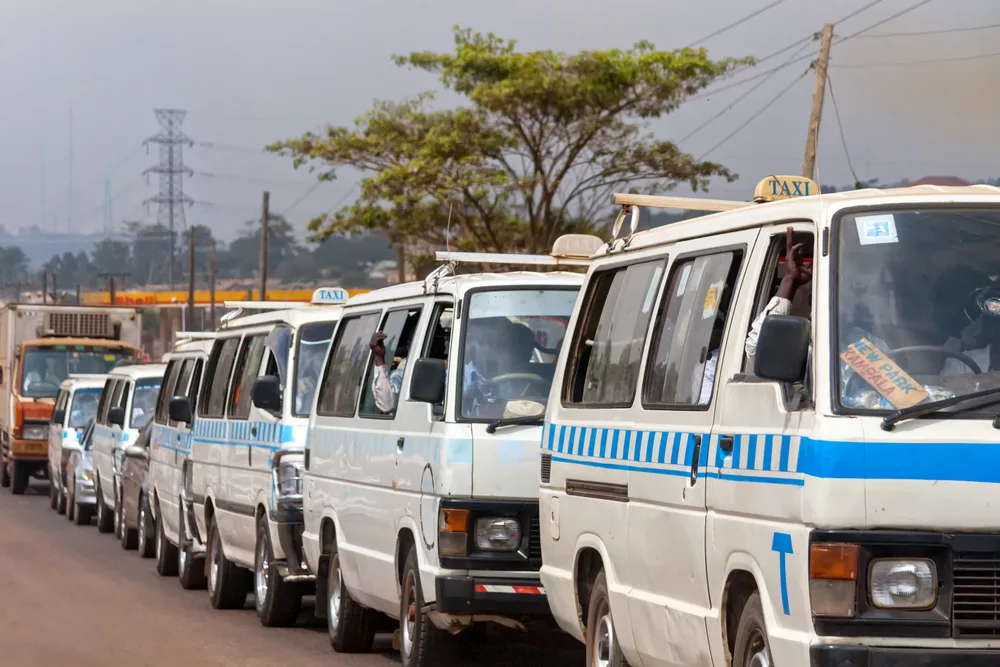Who we are
The Real Urban Emissions (TRUE) Initiative supports cities worldwide to develop effective air quality and climate policies with independent real-world vehicle emissions data, analysis, and expert guidance.
Our goal is to improve urban air quality, reduce the climate impact, and improve health outcomes associated with vehicle pollution by closing the gap between real-world and regulated vehicle emissions in cities across the globe.

Urban air quality is a global health crisis.
The transportation sector remains one of the largest sources of global greenhouse gas emissions and a significant driver of urban air pollution, posing severe risks to public health and the environment worldwide.
In dense, urban environments, road transport greatly contributes to local air pollution levels and is the largest source of harmful ambient nitrogen dioxides (NO2). City driving presents particularly difficult challenges for sustaining low-emission levels. From starting the engine, to frequent stops and idling, these habits exacerbate local air quality issues and impact resident health.
Adverse health effects from exposure to traffic-related pollution include premature deaths, shorter lives, asthma, and heart disease, and we see the largest impact on lower-income communities and those in emerging market countries.

Each year, nearly 250,000 deaths are attributed to the pollution caused by dirty transportation.

The TRUE Initiative was launched to provide cities with an independent source of data showing what vehicles in their communities are really emitting.
Today, our vehicle emissions testing and associated analysis has emerged as an essential underpinning of strong, evidence-based policies that address the highest emitting vehicles, improve air quality, and protect public health.
The TRUE Initiative is a partnership of the FIA Foundation and the International Council on Clean Transportation, and is supported by an Advisory Group including members such as C40 Cities, Clean Air Fund, and several universities globally.
Closing the emissions gap
The TRUE Initiative fills that gap by providing independent data sources and expert analysis.
The Dieselgate scandal highlighted the disconnect between laboratory testing and real-world vehicle emissions. The deliberate fraud which was inherent in the scandal gave huge prominence to the issue, but as we’ve discovered, that was just scratching the surface. Through our independent research, we have documented excess emissions above lab-tested values – an emissions gap – in many different places and across varying vehicle models and fuel types. This gap continues to present challenges for cities to effectively address the impact of vehicles on the environment, air quality, and public health.
A holistic approach will ultimately be needed to fully tackle these health and climate impacts.
Our research shows that exhaust emissions from modern cars can still be many times higher in the real world than regulatory limits allow. It is important to address the emissions from vehicles already on the road today through policy and action, while also transitioning to zero-emission fleets and alternative forms of mobility.
What was Dieselgate?
The Dieselgate scandal, which broke in 2015, exposed the unlawful activities of several automotive manufacturers in “cheating” laboratory emissions tests. One manufacturer acknowledged the installation of illegal emissions control devices in nearly 11 million diesel vehicles worldwide.
These software emissions control systems could detect when vehicles were undergoing emissions testing in a laboratory setting and temporarily alter the engine’s performance to reduce nitrogen oxide emissions, making the cars appear compliant with environmental regulations. During normal driving conditions, however, the vehicles would emit up to 40 times the legally permitted levels of pollutants.
Legal cases were brought against these manufacturers, citing real-world emissions measurements as evidence of the large discrepancy between official and real-world levels. The lasting effects of this scandal have prompted stricter regulatory frameworks and accelerated the shift toward more stringent emissions standards and zero-emission fleets, but there is still more work to be done.
Helping cities find solutions
While national governments are typically responsible for setting and enforcing motor vehicle emissions and fuel economy standards, cities are uniquely positioned to craft localized policies that can directly address air quality problems in high-traffic areas.
We collaborate with local governments, on-the-ground partners, and research institutions to gather and analyze data that can support these localized efforts. TRUE research can assess if current policies are working as intended. It can also support the development of low-emission transportation policies and actions.
Learn more about how we help cities address air quality challenges at home.
How does your car rate in Europe?
In cities like London, Brussels, and Warsaw, real-world vehicle emissions are often much higher than regulatory standards. The TRUE Rating Tool allows you to explore how your vehicle measures up against European emission standards and offers a closer look at the full magnitude of emissions over its lifetime.
Our Impact
Partnering with stakeholders around the world, the TRUE Initiative analyzes independent real-world data to offer cities greater insight into their vehicle fleets and the impact on urban air. Explore our recent reports and publications.
Our History
Responding to the Dieselgate scandal and its far-reaching implications, the TRUE Initiative was formed as an independent initiative to analyze real-world emissions data. We have since partnered with more than 20 cities in 6 regions around the world, and through our on-the-ground testing campaigns, collected over 4 million measurements. Learn more about our impact over the years.
